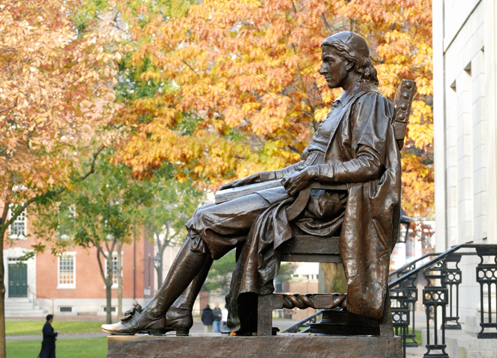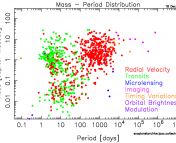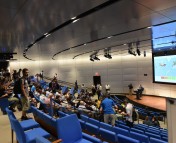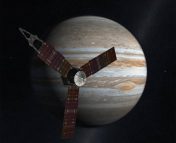In this series of posts, we sit down with a few of the keynote speakers of the 230th AAS meeting to learn more about them and their research. You can see a full schedule of their talks here!
Today’s profile is of the atomic physicist James Lawler of the University of Wisconsin – Madison, who’s being awarded the LAD Prize this year for his seminal work in spectroscopy and ‘advancing our understanding of galactic nucleosynthesis and chemical evolution’.
Talking to James was an exciting journey into the mind of a scientist who wants to contribute as much as he can to emerging fields in astrophysics. At the age of 66, James has turned his eyes toward exoplanets and gravitational wave physics, ” We are anticipating that the combination of aLIGO and VIRGO will be able  to detect neutron star mergers; my real interest is to determine the role of these to make r-process elements, which is roughly half of the heavier isotopes beyond the iron group. I am also working on spectroscopic methods that could aid in studying exoplanets, in relation to the biology. We know that molecular oxygen is a particularly important biomarker, and if you see a lot of O2 in an exoplanet atmosphere, we know that could be a product of photosynthesis. I am more of a laboratory spectroscopist, but I am more than happy to work with observers/astronomers who use the telescopes.”
to detect neutron star mergers; my real interest is to determine the role of these to make r-process elements, which is roughly half of the heavier isotopes beyond the iron group. I am also working on spectroscopic methods that could aid in studying exoplanets, in relation to the biology. We know that molecular oxygen is a particularly important biomarker, and if you see a lot of O2 in an exoplanet atmosphere, we know that could be a product of photosynthesis. I am more of a laboratory spectroscopist, but I am more than happy to work with observers/astronomers who use the telescopes.”
James first got interested in academia back in high school, where he realised he had a strong interest in math, but at the University of Missouri while doing his undergraduate studies, he felt he did not have the right talent to do research in the field. Physics, on the other hand, was discovered as a calling! “I had originally planned to go into the private sector after getting my PhD in physics, but I could not decline a post doc with the Schawlow/Hansch group at Stanford (who both subsequently won Nobels for their work on lasers). I definitely have no regrets, and have not looked back since”, he says.
We moved our conversation to his discussions with students he has taught, and what careers he’d like them to pursue – whether in optical technology, or even at the intersection of science and policy. James responds,” When I teach thermodynamics, I ask my students to write a report at the end of the semester, and pretend that they are either an advisor to a policymaker or perhaps they have been elected to some office, and to evaluate in their report a new energy related technology. It was great fun! I had all kinds of talks in the lecture on new emerging technologies, that might affect the energy sector and climate change.”
“On the optical side, if I were advising a student,I urge them to think about things that can affect mass markets – how things are processed, or how some of these technologies might be computer and software e.g. CCDs (a typical mass market product).”
James thinks that despite large sky surveys pushing the need for more photometric analysis, spectroscopy ‘has, and will always, reveal the detailed physics and chemistry of the remote Universe’. “As telescopes get bigger, spectrographs get more expensive, naturally. When you talk about a billion dollar telescope having a compatible Echelle-spectrograph, you have to spend tens of millions of dollars for that. We are thinking hard about ways to bring down the cost effectively, e.g. non-dispersive spectrometers, Fourier transform spectrometers.”
What advice would James give his younger self, or our younger readers? “What I would say is that don’t lose sight of the intellectual excitement. You get distracted when you become a faculty member by all kinds of demands on your time. But don’t lose sight of the fun and excitement! That’s what draws us into science.”
Catch James Lawler at AAS 230 next week for more on stellar spectroscopy!





Trackbacks/Pingbacks